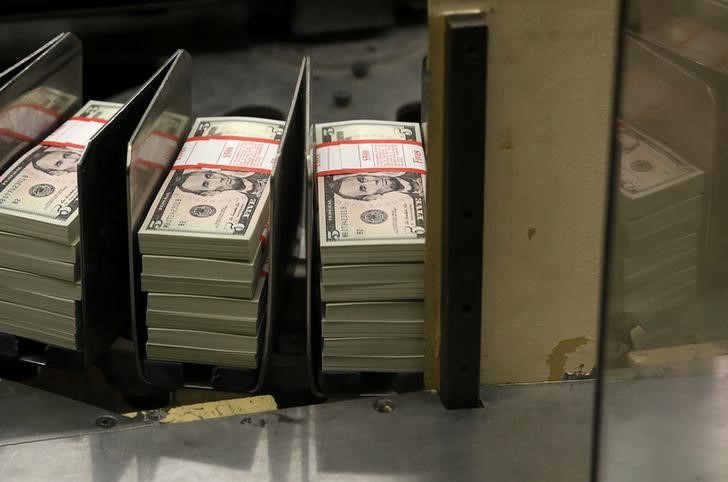Gold prices edge lower; heading for weekly losses ahead of U.S.-Russia talks
* Graphic: World FX rates in 2019 http://tmsnrt.rs/2egbfVh
* Weak data stuns dollar bulls into selling
* Worries about trade friction hurt sentiment
* Trade war extends to Argentina, Brazil
By Stanley White
TOKYO, Dec 3 (Reuters) - The dollar traded near a one-week
low versus the yen on Tuesday and near the lowest in almost two
weeks against the euro, on concern about weak U.S. manufacturing
data and signs of new fronts in the U.S. trade war.
Sentiment took a hit after U.S. President Donald Trump
announced tariffs on metal imports from Brazil and Argentina.
The Australian dollar rose after the country's central bank
stuck with its optimistic outlook for the economy after leaving
interest rates on hold. Recent U.S. economic data had shown signs of improvement, so
a fourth consecutive month of shrinking manufacturing activity
as well as an unexpected decline in construction spending put a
big dent in hopes that the world's largest economy had
stabilised.
Investors are also worried about whether the United States
and China will be able to reach a deal soon to scale back their
17-month long trade war, while more tariffs on other countries'
goods would pose an additional risk to the global economic
outlook.
"The weak data forced a lot of people to give up dollar
longs and cut losses," said Daiwa Securities' foreign exchange
strategist Yukio Ishizuki in Tokyo.
"This may have run its course, but there's no reason to
chase the dollar's upside from here. Trade friction remains a
lingering threat, which is not good for market sentiment."
The dollar traded at 109.18 yen JPY=EBS on Tuesday in
Asia, close to its lowest in a week. It was quoted at $1.1075
versus the euro EUR=EBS after falling 0.56% on Monday, its
biggest decline against the single currency since Sept. 17.
Against a basket of six major currencies, the dollar index
.DXY stood at 97.905, having fallen on Monday by the most in
six weeks.
The Aussie AUD=D3 rose 0.34% to $0.6842 after the Reserve
Bank of Australia left rates at a record low of 0.75% on Tuesday
at its last meeting of the year. On Monday, the U.S. Institute for Supply Management said its
index of national factory activity fell 0.2 point to 48.1 in
November. A reading below 50 indicates contraction. Economists
polled by Reuters had forecast a rise to 49.2 from 48.3 a month
prior. Separate data showed construction spending fell in October
as investment in private projects tumbled to the lowest level in
three years. The data surprised economists who had recently raised U.S.
growth forecasts for the forth quarter due to positive data on
trade, housing and manufacturing.
Meanwhile, Trump surprised policymakers in Brazil and
Argentina with tariffs on steel and aluminium imports.
In a Monday tweet, Trump said the tariffs, "effective
immediately", were necessary because "Brazil and Argentina have
been presiding over a massive devaluation of their currencies,
which is not good for our farmers."
The comment came despite both countries actively trying to
strengthen their currencies against the dollar.
The Brazilian real BRL= rose 0.3% to 4.2230 on Monday
after Brazil's central bank conducted a spot auction to support
the currency. The Argentine peso ARS= was largely unchanged at
59.88.
In another sign of trade friction, the United States said on
Monday it planned to increase taxes on $2.4 billion in French
products including Champagne and handbags by 100%, after
determining that France's new digital services tax would harm
U.S. companies like Alphabet Inc's Google GOOGL.O and Apple
Inc AAPL.O .
Trump, citing U.S. farmers, slaps metal tariffs on Brazil,
Argentina manufacturing contracts further, tempers economic growth
hopes construction spending unexpectedly falls in October ^^^^^^^^^^^^^^^^^^^^^^^^^^^^^^^^^^^^^^^^^^^^^^^^^^^^^^^^^^^>
